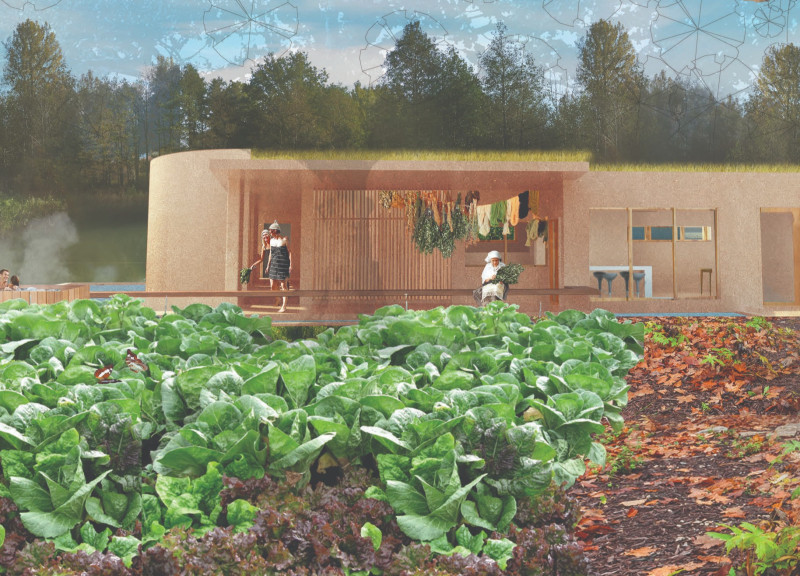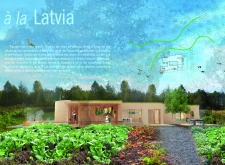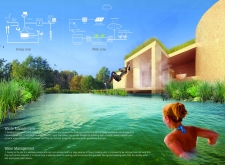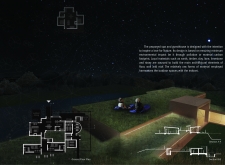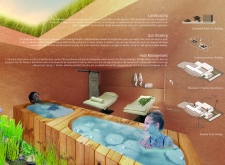5 key facts about this project
## Proposed Architectural Spa Design in Latvia
The spa and guesthouse is situated in the central region of Latvia, designed to serve as a retreat that combines traditional Latvian wellness practices with modern architectural solutions. The intent is to create a rejuvenating environment that fosters a reconciliation between the built space and the natural landscape. This design emphasizes sustainability through the careful selection of materials and innovative environmental systems, offering a distinctive experience for guests.
### Spatial Journey
The design facilitates a carefully curated sequence of spaces that guide users through various wellness rituals. Guests begin with invigorating outdoor showers, transition to restorative therapy rooms, and enjoy the traditional experience of a sauna, followed by rejuvenation in a natural swimming pond. Communal outdoor hot tubs encourage social interaction, enriching the overall wellness experience. Each space is designed to promote relaxation while establishing a connection to the natural surroundings.
### Material and Environmental Strategies
The project prioritizes the use of local, sustainable materials. Earth serves as a primary structural element, helping the building harmonize with its environment. Timber, clay, lime, limestone, and straw are incorporated to create energy-efficient and environmentally friendly structures.
An energy loop system is implemented to manage organic waste, converting it into energy to support the spa’s operations. Integrated water management systems capture rainwater and recycle natural pond water, reducing reliance on freshwater resources. Advanced waste management techniques are employed throughout construction and daily operations to minimize environmental impact. Additionally, the use of earth and thermal mass aids in regulating internal temperatures, enhancing thermal performance while lowering energy consumption.


